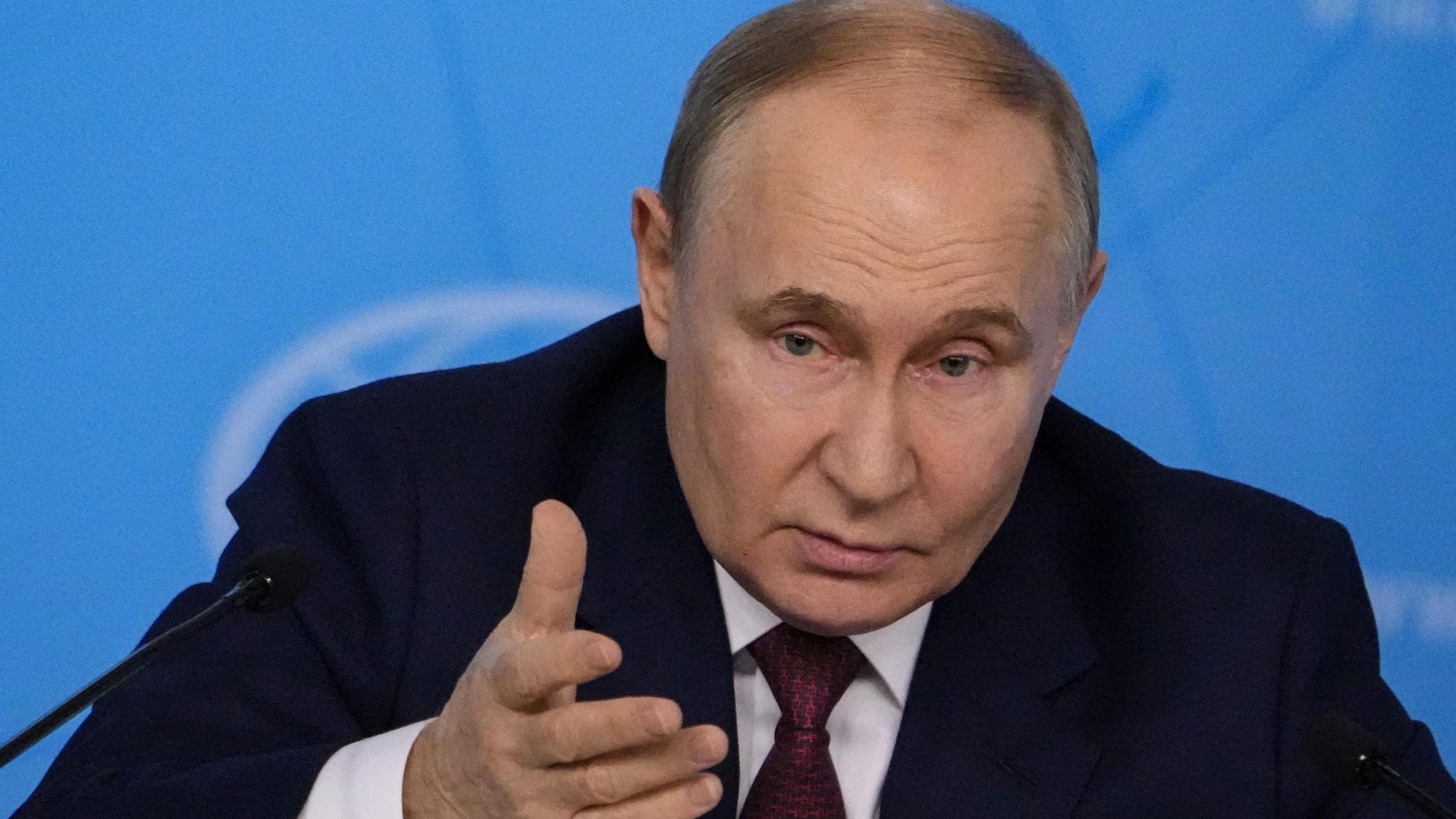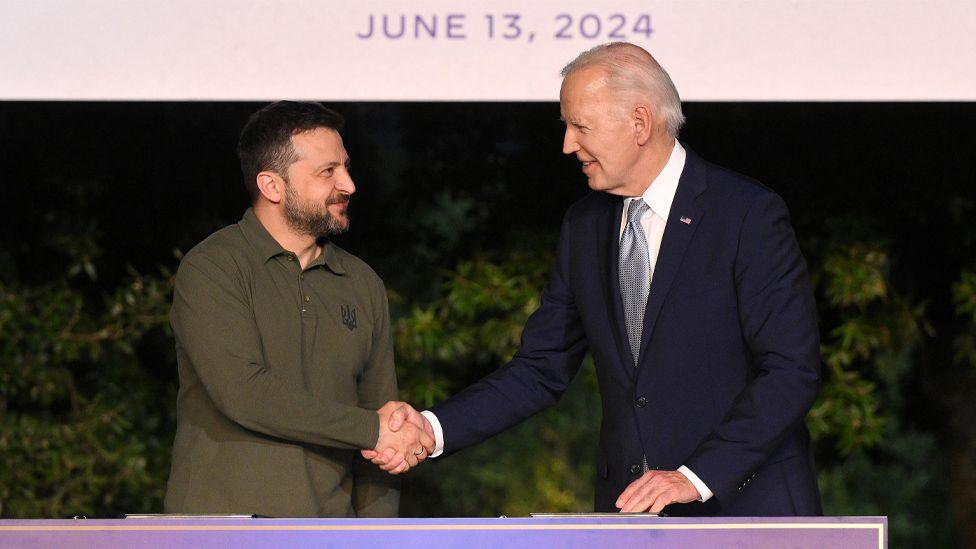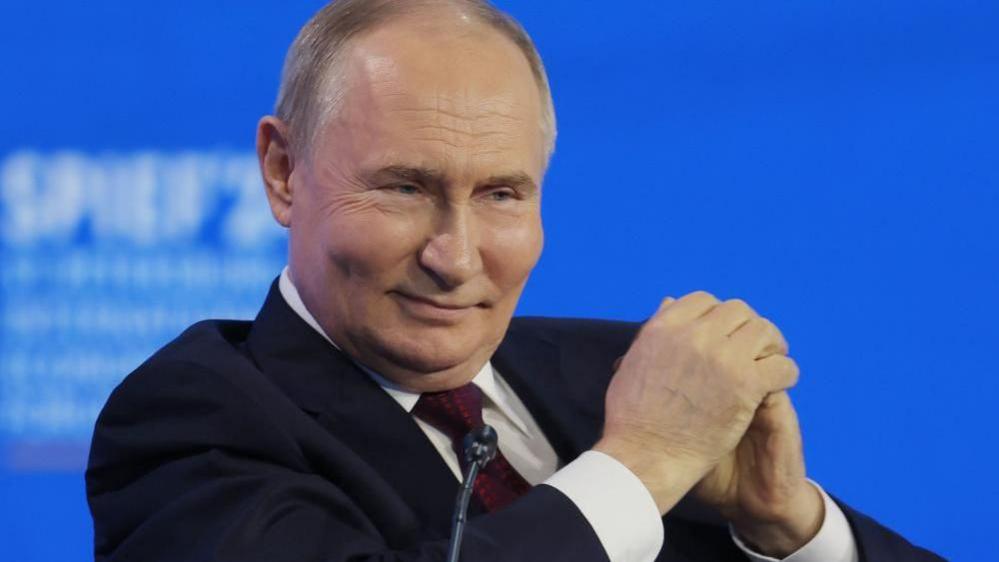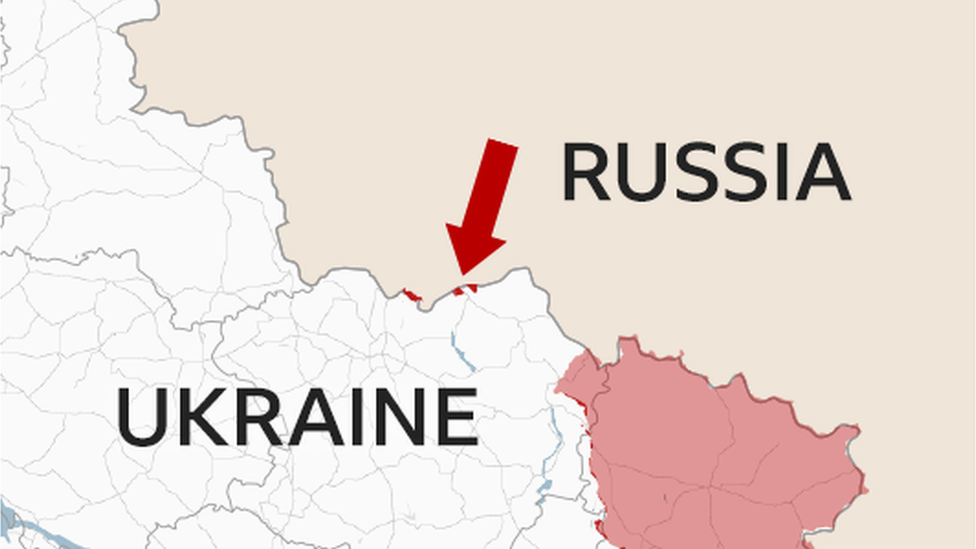Putin lays out his terms for ceasefire in Ukraine

Mr Putin wants Ukrainian troops withdrawn from regions annexed by Russia
- Published
Vladimir Putin has said Ukraine would need to withdraw troops from territories Russia claims to have annexed before a ceasefire could begin - a proposal Ukraine's president called a Hitler-like "ultimatum".
Volodymyr Zelensky has long said Ukraine will not negotiate with Moscow until Russian forces leave all Ukrainian territory, including Crimea.
The Russian president also said Ukraine would have to give up on joining Nato before peace talks could start.
Mr Putin's statement setting out his ceasefire conditions comes as leaders from 90 countries prepare to meet in Switzerland on Saturday to discuss paths towards peace in Ukraine - a summit Russia has not been invited to.
Speaking to a meeting of Russian ambassadors in Moscow on Friday, Mr Putin called on the Ukrainian government to withdraw from four regions partially occupied by Russia - Donetsk, Luhansk, Kherson and Zaporizhzhia.
He also said Ukraine would need to officially give up in its efforts to join the Nato military alliance for the Russian advance to be halted.
Mr Putin said: "As soon as Kyiv declares that it is ready for such a decision... an order to cease fire and begin negotiations will immediately follow from our side, literally at the same minute."
Ukrainian presidential adviser Mykhailo Podolyak called the proposal a "complete sham" and "offensive to common sense".
Later on Friday, President Zelensky told Italy's Sky TG24 television: "These messages are ultimatum messages. It's the same thing Hitler did, when he said 'give me a part of Czechoslovakia and it'll end here'."
US Defence Secretary Lloyd Austin also dismissed the Russian demands, saying: "Putin has illegally occupied sovereign Ukrainian territory.
"He is not in any position to dictate to Ukraine what they must do to bring about a peace."
Nato Secretary-General Jens Stoltenberg said Mr Putin's proposal was "not made in good faith".
Russia analyst Tatiana Stanovaya said Mr Putin's plan is a set of "maximalist" demands that offer no concessions, timed to devalue the peace conference ahead of it beginning.
Mr Zelensky will be attending Saturday's summit near Lake Lucerne, where he will hope to show he still enjoys wide international support.
The Swiss government has said the aim of the summit is "to provide a forum where world leaders discuss paths towards a just and lasting peace in Ukraine, based on international law and the UN Charter".
Other attendees will include US Vice-President Kamala Harris, French President Emmanuel Macron, German Chancellor Olaf Scholz, Italian Prime Minister Giorgia Meloni and European Commission President Ursula von der Leyen.
Russia was not invited and China has said it will not attend without Russia's presence.
The peace summit comes after G7 leaders agreed to use interest from frozen Russian assets to help Ukraine fight invading Russian forces.
Some $325bn (£256bn) worth of assets were frozen by G7 countries, alongside the EU, following Russia's full-scale invasion of Ukraine in February 2022. The pot of assets is generating about $3bn a year in interest.
Under the G7 plan, that $3bn will be used to pay off the annual interest on a $50bn loan for the Ukrainians, taken out on the international markets.
The money is not expected to arrive until the end of the year but is seen as a longer-term solution to support Ukraine's war effort and economy.
On the sidelines of the G7 summit, the US and Ukraine also signed a 10-year bilateral security deal, hailed by Kyiv as "historic".
Related topics
- Published14 June 2024

- Published7 June 2024

